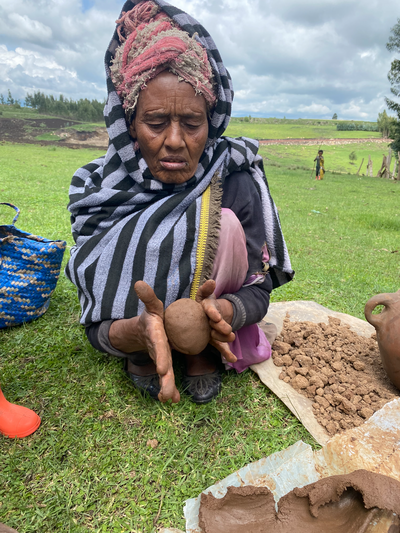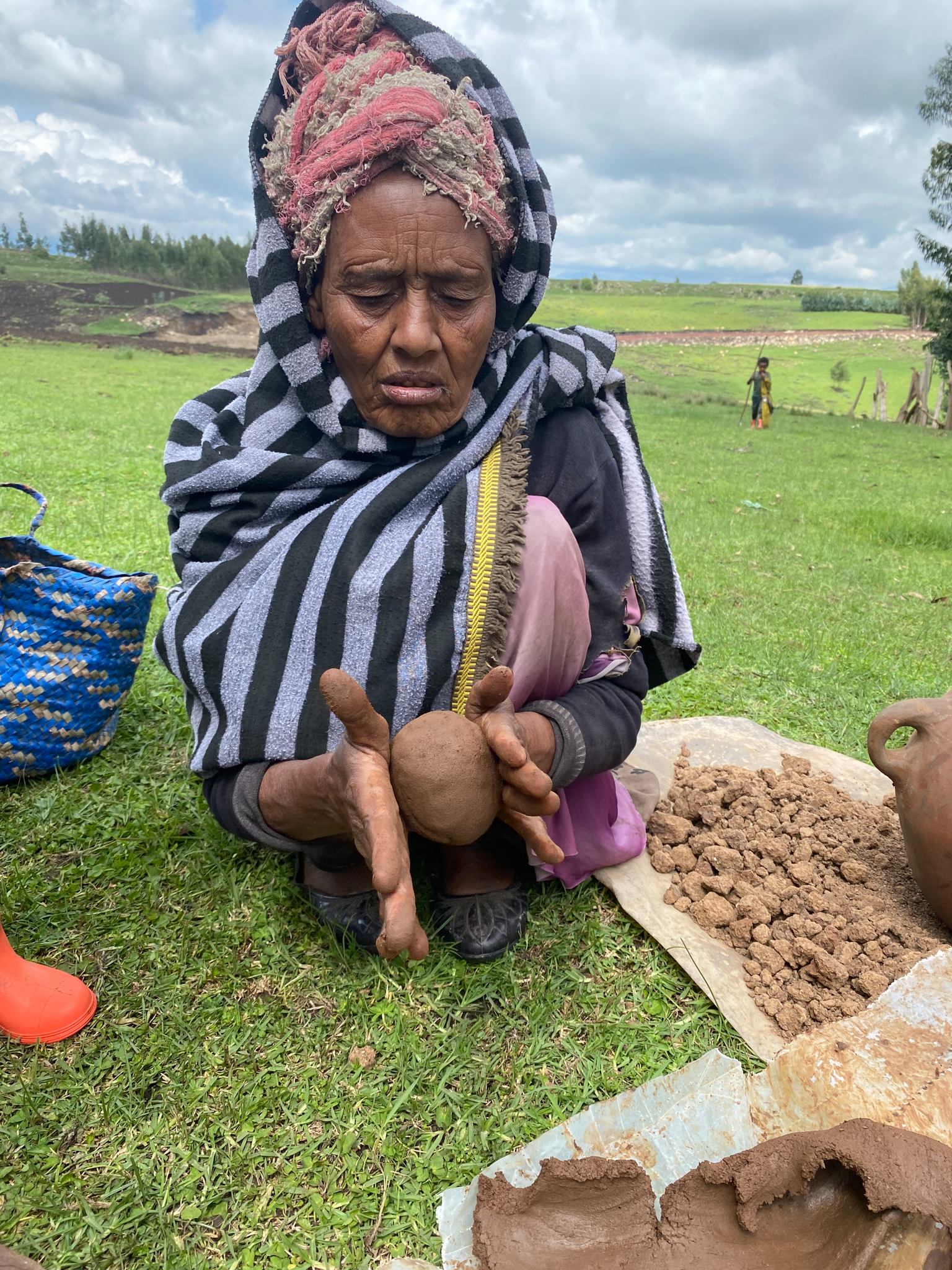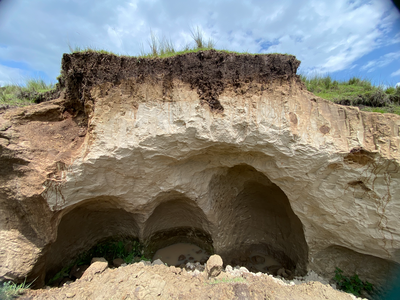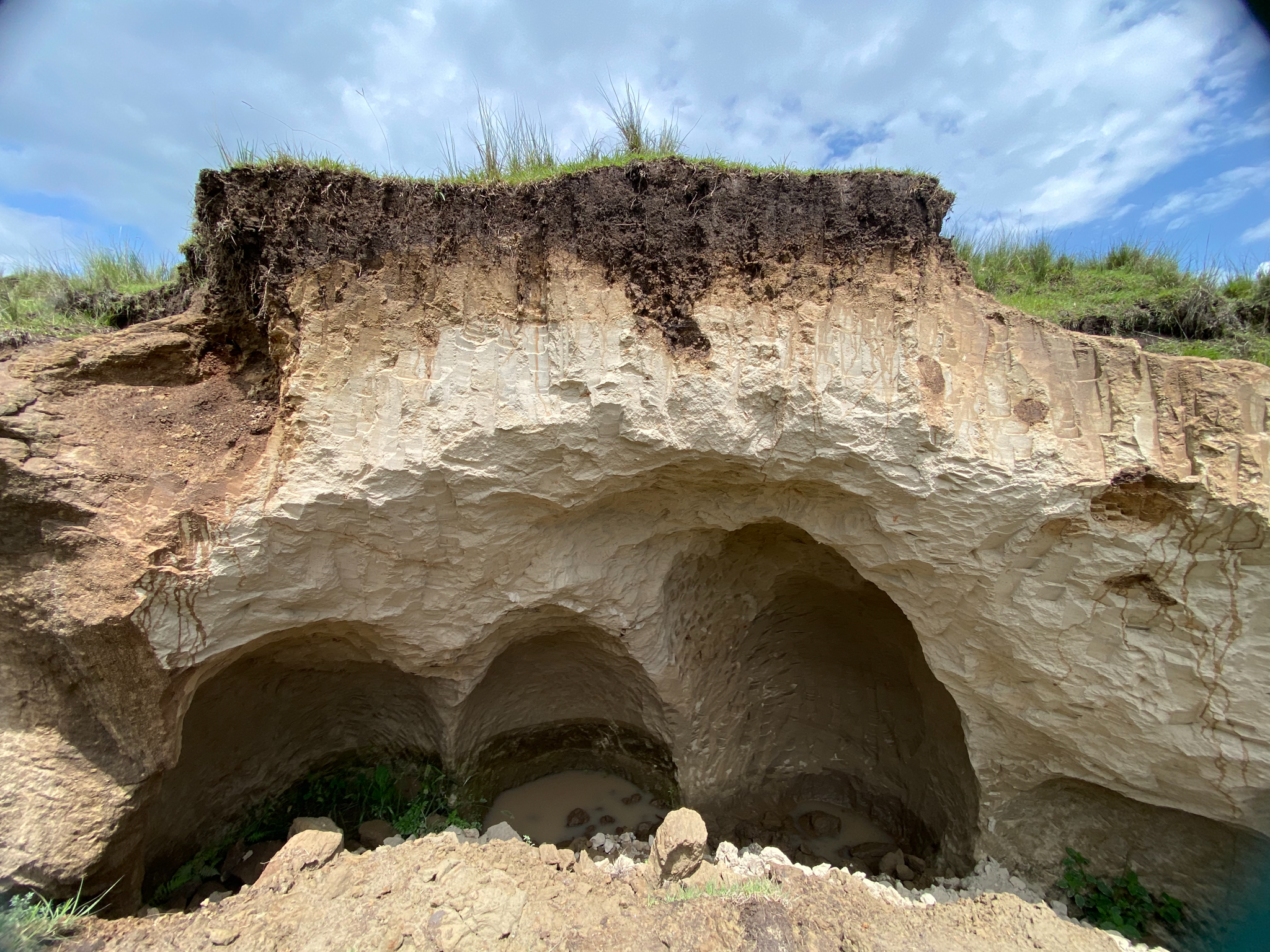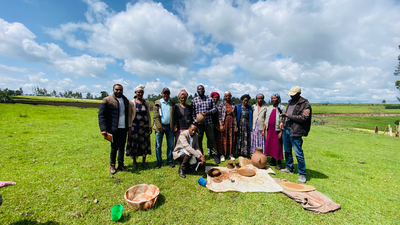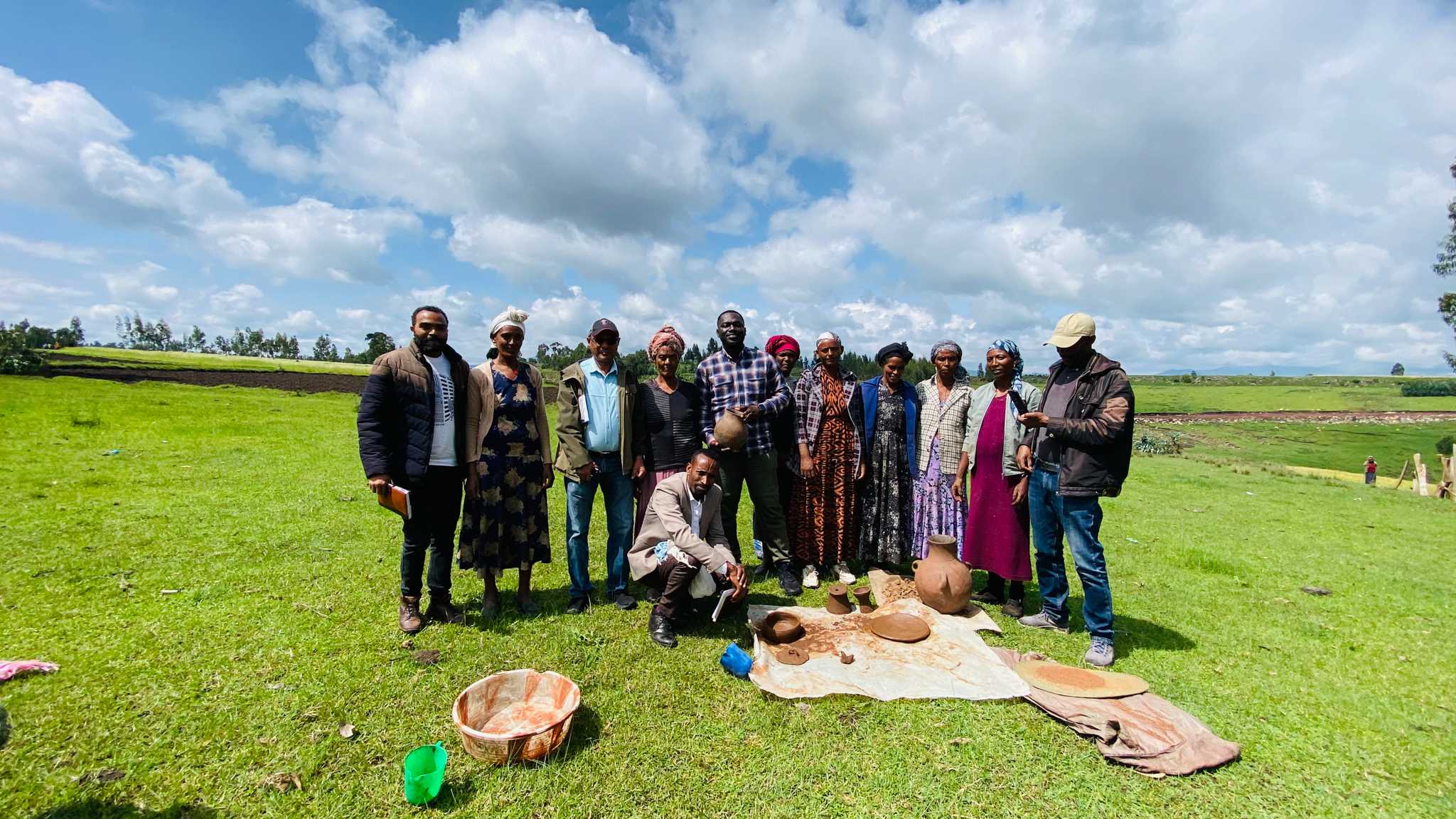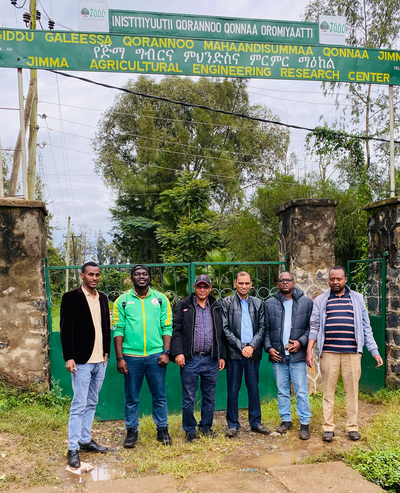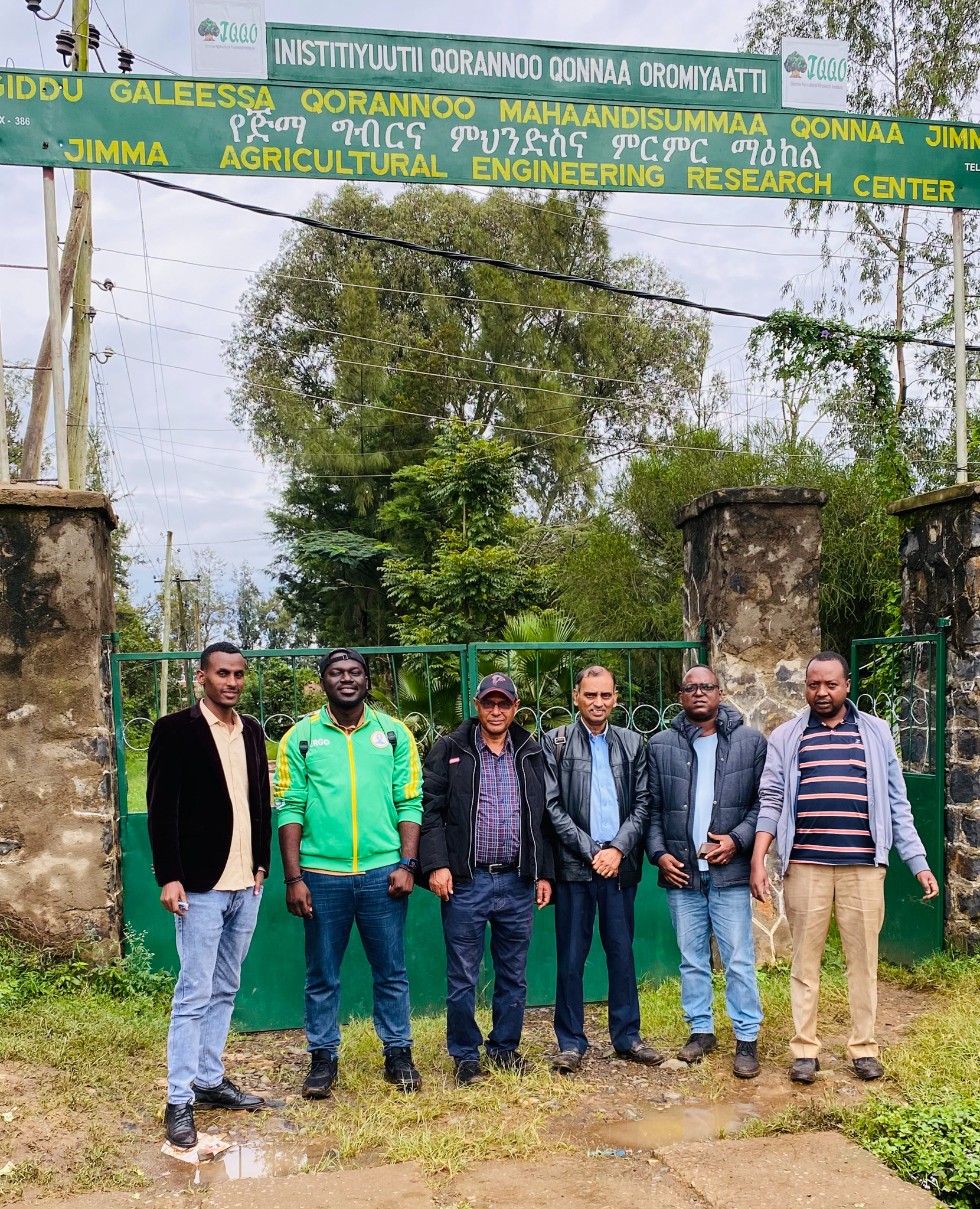Clean cooking for rural households
15.08.2024
One of ETH-Soils's goal is to provide clean and sustainable cooking energy for rural households. By employing clay as building material and biogenic residues as fuel, the ETH-Soil cookstove model uses readily available, cheap resources to work towards healthy and climate-friendly technologies. The model developed at DBFZ was designed based on the needs in Ethiopia. The TLUD principle (top lit updraft) enables low-emission heat production through pyrolisation of various biomasses which can reduce deforestation. The resulting biochar can be used as a soil amendment or as fuel. Read more about the background here.
From July 29 to August 6, 2024, Dr Clement Owusu Prempeh embarked on a strategic mission to Ethiopia with the primary objective of advancing our clean cooking initiatives. The trip focused on collating information on registering and licensing our innovative cookstove model with the Ministry of Water and Energy (MoWE), as well as building relationships with key stakeholders to support local production, distribution, and promotion.
Supported by ETH-Soil project coordinator Dr Getachew Eshete, they met with the Ethiopian Rural Energy Development Promotion Center under MoWE, gaining valuable insights into the cookstove registration and licensing process. They learned that MoWE will handle essential safety, durability, and thermal efficiency tests, with plans to conduct an acceptability study involving 15-20 prototypes.
In order to build strategic partnerships, the team established potential collaborations with leading organizations such as SNV, Energising Development - Deutsche Gesellschaft für Internationale Zusammenarbeit (ENDEV-GIZ), and Ethiopian Cleaner Cooking Alliance (ECCA). These partnerships are expected to play a pivotal role in supporting the production, promotion, and dissemination of ETH-Soil's cookstoves across Ethiopia.
The third objective of the trip was the assessment of local production capabilities. Visits to various production centers and clay sites in Asella, Bekoji, Adama, and Jimma provided a comprehensive understanding of the local production landscape and capacity to reproduce a cookstove model from Germany. The team identified both strengths – there exists great experience with various cookstove prototypes – and challenges, including the need for improved tools and technology to enhance production efficiency.
This mission marks a significant milestone in our commitment to providing sustainable cooking solutions in Ethiopia. We are excited about the opportunities ahead and will continue to work closely with our partners to bring our vision to life.
